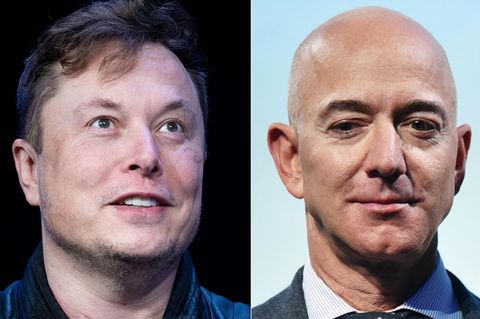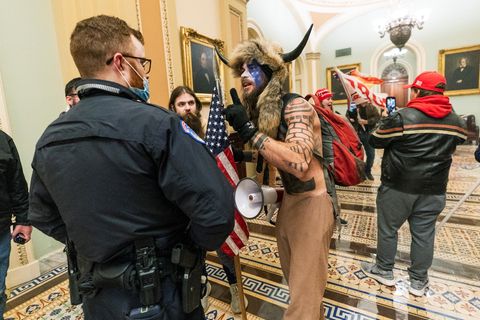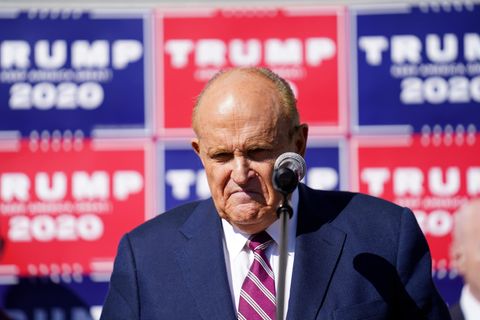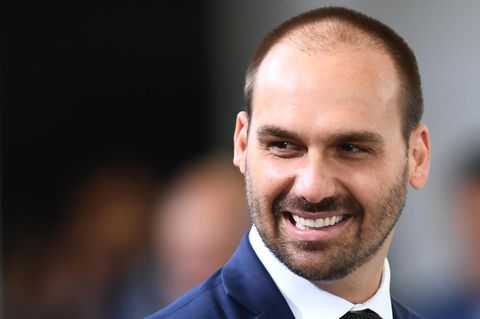Mr. Soros, how does it feel being a speculator, these days?
Soros hesitates, finally laughs. It is not always easy. Yet, when people ask about my profession, I say: Yes, I am a speculator. I am a financial, as well as a philanthropic and philosophic, speculator. And in this wider sense, I am proud of being a speculator.
In a recent interview with stern Magazine, German President Horst Koehler referred to the international financial markets, where you, over the past year, made billions of dollars, as a "monster". Are you stung by this criticism?
Hesitates again. There is certainly quite a bit of truth to this. And to be clear: I am a speculator but I don't defend current speculation...
...what do you mean by that…
...because I comply with the rules. And I have been calling for a better regulation of the financial markets for a long time, for instance on the credit market. In this sense, your President is right. We need to start regulating capitalism better. Otherwise, it is going to destroy itself - and we are going to destroy ourselves.
Further reading
Read the complete story (in German) in the latest edition of the stern magazine.
That is what seems to be happening right now: Prices for commodities such as wheat and oil traded on the Exchange are skyrocketing. They are threatening prosperity here at home and causing strikes, even riots, in poorer countries. Are speculators driving the world towards the next deep crisis?
That is only partly correct, since every speculation is also rooted in reality. Let's stick with the example of oil. A number of objective reasons are responsible for driving up prices.
Such as?
Supply and demand. Many oil fields are old. Their production is declining, in some cases dramatically, such as in Mexico or Saudi Arabia, who are the suppliers of the West. As a result, supply is limited. In addition, many oil producers leave rich oil reserves untouched, betting on constantly rising prices. Another factor is rising demand in countries such as China or India. Plus, the climbing prices help stabilize authoritarian, corrupt regimes such as in Venezuela, Iran or Russia. It is almost like a curse of natural resources. It is downright perverse.
So that means that all speculators are in truth innocent?
No, of course not. Speculators create the bubble that lies above everything. Their expectations, their gambling on futures help drive up prices, and their business distorts prices, which is especially true for commodities. It is like hoarding food in the midst of a famine, only to make profits on rising prices. That should not be possible. Therefore I think that the large US pension funds should not be allowed to invest in commodities. And Hedge funds should be subject to higher minimum stakes, if they plan to invest in commodity markets. The current run on commodities reminds me of a similar craze a good 20 years ago. Back then, everybody was crazy about so-called portfolio insurance packages. Then, too, it was investors who destabilized the market, which led to excessive behaviour and ended in the 1987 stock market crash.
Isn't a crash of such magnitude imminent?
We are in the midst of the worst financial crisis in 30 years. We have recently seen how bubbles burst. Take, for example, the high tech bubble or the current mortgage crisis. And we have not yet seen the end of this one. The decline goers further than people expect. I believe, that we have not even seen half of the price deterioration. Over the next year, more than 2 million households will become insolvent because they will not be able to pay back their loans. There is a huge destruction of wealth underway.
You even talk about a "super bubble"...
...Yes. It started to form in 1980, when the ideology of market fundamentalism gained a foothold.
According to which, markets should regulate themselves, government interventions should be denied and restrictions should be lifted.
Everything was based on self-regulating markets, which by the way was not an American invention. It started with Margaret Thatcher in the UK and was further promoted and pushed here in the US by then President Ronald Reagan. He even talked about the "magic of the market". He, of all people, who is nowadays glorified almost like a saint. Yet, these highly praised markets have time and again been prone to excessive buying and selling which is almost impossible to control. US interest rates were so low that banks encouraged people to borrow more and more money. That is shocking, irresponsible. However, until now there was reason to hope that the government would intervene when things got really bad.
Just like a couple of months ago, when the US investment bank Bear Stearns basically collapsed and the Fed pumped billions of dollars into the system to avert further disasters.
Yes, this is how you get bailed out, how buy your way out of the crisis. Though at some point, the alleged boom ends in a crisis. And this is exactly what we are currently seeing, the end of a super boom, the failure of a false ideology. We are witnessing the end of the "feel good society", the end of an era.
How sick is the US economy really?
I think that a recession is unavoidable. For years, the US has virtually absorbed the world economy's money resources - since the dollar was the world's reserve currency. We borrowed money from everybody, consumed more than we produced and are highly in debt. Yet nowadays, the dollar becomes less and less important as a reserve currency. Prices are rising. The mortgage and credit crises are like the sword of Damocles hanging above our heads. We have little wiggle room left. And Europe too, is going about the problem the wrong way. Inflation fear led the ECB to raise interest rates. That is not a smart thing to do. Although the recession emanates from the US, the Europeans are about to import the recession.
Is this the heritage of the Bush administration? The President called the economic crisis an "interesting moment"...
...I really do criticize Bush for a lot of things - but in this case he just was a good student. His terrible heritage is rather the so-called war on terror, which provided the pretense for going to war with Iraq. Bush undermined our civil rights and the foundation of our constitution.
You argue that the US is the biggest hurdle for a stable and just world order.
Yes, and the worst thing is Bush's abusive use of the word democracy. Over the course of my long life, I have spent more than half of my fortune on promoting democracy in the world...
You are said to have invested several million dollar in the Open Society Institute which you founded...
...as a result of which I learned that people have to find their own way toward democracy. You can help them in getting there - but you cannot force democracy upon people. Bush abused the principles of democracy. That is his heritage.
He has only a couple of months left in office. On which candidate does George Soros bet?
If the Europeans had their way the choice would be clear: Barack Obama.
And would that be a good choice?
Yes, because Barack Obama is an exceptional, transformational figure. He has the potential to truly change America. His career is evidence of that. His life as an African American in a white society, his striving for reconciliation. He has the substance to tackle the huge problems facing this country because, on election day, people will be interested in only one thing: their jobs and the mortgage crisis. It will be an election about the economy.
Many people doubt that America will actually elect an African American President.
I think America is ready. And it would be good for the world because Obama has a better understanding of the world, of what people feel, how they live. And this understanding of the rest of the world is exactly what America needs now. What is more, the Republicans are completely ruined.
And yet, chances for John McCain, the war hero, seem to be pretty good.
I respect him, his life story, yet he is almost antiquated. No, he is way too much rooted in the past. This would be like the election of Herbert Hoover...
...which was in 1929 and ended in the Great Depression.
I have no doubt that John McCain is a good man. But he is simply the wrong man for our time.





